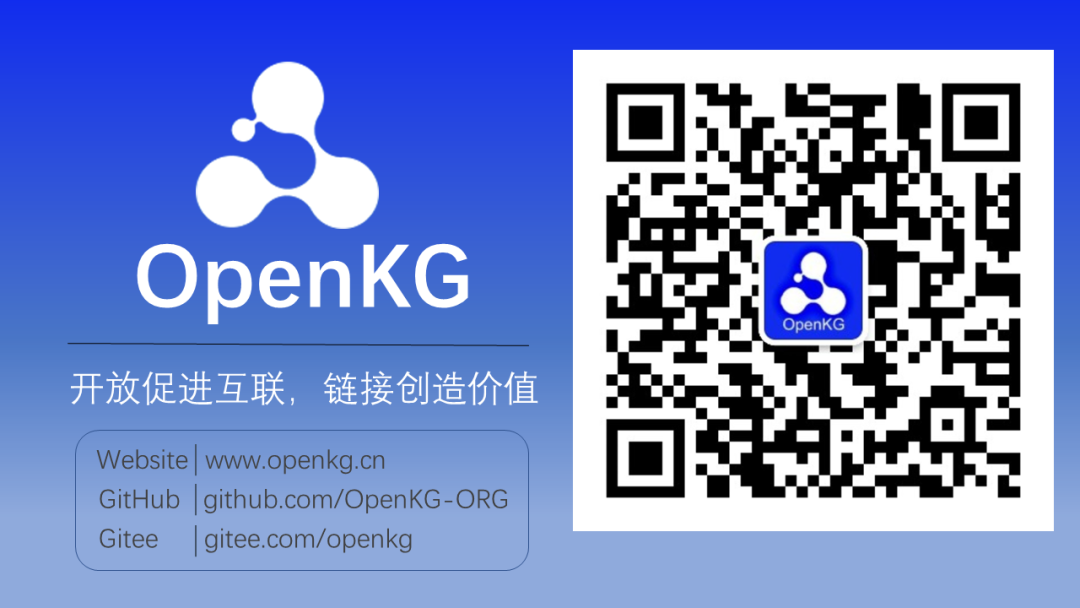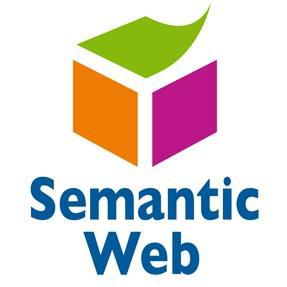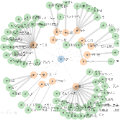会议交流 | IJCKG 2021:Keynotes released!欢迎注册参会
IJCKG 2021: The 10th International Joint Conference on Knowledge Graphs
December 6-8, 2021 Online
国际知识图谱联合会议之前是国际语义技术联合会议(the Joint International Semantic Technology Conference (JIST)),JIST 会议的历史要追溯到 2006 年在北京召开的第 1 届亚洲语义网会议 ASWC,第 5 届 ASWC2011 在杭州召开时更名为第 1 届国际语义技术联合会议JIST 2011。JIST 会议是语义网、知识图谱、关联数据和人工智能主题方面在亚洲召开的高端论坛会议。今年 JIST 会议和 ACM/SIOGAI 联合举办,更名为 IJCKG,将扩大会议的国际影响力。
Keynotes
Professor Ian Horrocks FRS
Department of Computer Science, Oxford University
Knowledge Graphs: Theory, Applications and Challenges
Abstract:
Knowledge Graphs have rapidly become a mainstream technology that combines features of databases and AI. In this talk I will present my personal view of what a knowledge graph is, discuss the theory behind them, and illustrate their use in a range of applications. I will then consider the challenges inherent in both the implementation and application of Knowledge Graphs and present some of our recent research that addresses both aspects.
Biography:
Ian Horrocks is a full professor in the Oxford University Department of Computer Science, a visiting professor in the Department of Informatics at the University of Oslo and a co-founder of Oxford Semantic Technologies. He is also a Fellow of the Royal Society, a member of Academia Europaea, a fellow of the European Association for Artificial Intelligence (EurAI), a Fellow of the Alan Turing Institute and a British Computer Society Lovelace Medalist. His research concerns the representation of knowledge, and the efficient manipulation of such knowledge by computers. He played a leading role in establishing the Semantic Web as a significant research field, pioneering many of the underlying logics, algorithms, optimisation techniques, and reasoning systems. He has contributed to the development of several widely used reasoning systems including FaCT++, HermiT, Elk and RDFox. He has published more than 300 papers in major international conferences and journals, winning best paper prizes at KR-98, AAAI-2010, and IJCAI-2017, and test of time awards at ISWC-2013, KR-2020 and CADE-2021. He is one of the UK’s most highly cited computer scientists, with more than 68,000 citations, and an h-index of 99.
Professor Juanzi Li
Department of Computer Science and Technology and the director of Knowledge Intelligence Research Center in Institute for Artificial Intelligence, Tsinghua University
Knowledge-oriented Explainable Cognitive Reasoning
Abstract:
The research paradigm of Artificial Intelligence is gradually changing from perception to cognition, and integrating symbolic and nummeric representation for knowledge reasoning is an important but challenging way to achieve cognitive intelligence. This talk introduces our attempts and experience on explainable cognitive reasoning based on complex question answering, including graph-based cognitive reasoning framework, knowledge-oriented interpretable reasoning programming and the construction of a large-scale benchmark on complex question answering over knowledge graph.
Biography:
Juanzi Li is the tenure professor in Department of Computer Science and Technology and the director of Knowledge Intelligence Research Center in Institute for Artificial Intelligence, Tsinghua University. She also serves as the director of Language and Knowledge Computing Committee at the Chinese Information Processing Society in China. Her research interests include knowledge engineering, news and social network mining. She has published over 100 papers in top-tier international conferences/academic journals and two books, i.e., “Mining User Generated Content” and “Semantic Mining in Social Networks”, which attracted over 10,000 citations. She won the second prize of State Science and Technology Progress Award in 2020, the first prize of the Beijing Science and Technology Award in 2017 and the first prize of China Association of Artificial Intelligence Science and Technology Award in 2013.
Dr. Yu Xu
Founder and CEO, TigerGraph
Knowledge Graph and Machine Learning: Three Key Business Needs
Abstract:
Digital transformation is accelerating the pace of innovation across all industries. Organizations are looking for ways to accelerate their analytics, AI, and machine learning projects to increase revenue, manage risks, and improve customer experience, especially for online channels. Knowledge Graphs combined with machine learning are driving three key data science capabilities to deliver the business outcomes organizations need:
•Connect internal and external datasets and pipelines with a distributed Graph Database – UnitedHealth Group is connecting 200+ sources to deliver a real-time customer 360 to improve quality of care for 50 million members and deliver call center efficiencies. Xandr (part of AT&T) is connecting multiple data pipelines to build an identity graph for entity resolution to power the next-generation AdTech platform.•Analyze connected data for never-before insights with Advanced Analytics – Jaguar Land Rover has accelerated supply chain planning from three weeks to 45 minutes, reduced supplier risk by 35%, and is driving three times the business value from the data.•Learn from the connected data with In-Database Machine Learning – Intuit has built an AI-based customer 360 knowledge graph with in-database machine learning for entity resolution, personalized recommendations, and fraud detection. Knowledge graph combined with machine learning is central to Intuit’s transformation into an AI-driven expert platform.
The session covers design considerations and deployment best practices from these case studies for combining knowledge graphs with machine learning.
Biography:
Dr. Yu Xu is the founder and CEO of TigerGraph, the world’s first native parallel graph database. Dr. Xu received his Ph.D in Computer Science and Engineering from the University of California San Diego. He is an expert in big data and parallel database systems and has 26 patents in parallel data management and optimization. Prior to founding TigerGraph, Dr. Xu worked on Twitter’s data infrastructure for massive data analytics. Before that, he worked as Teradata’s Hadoop architect where he led the company’s big data initiatives.
Associate Professor Juan Lorenzo Reutter
Department of Computer Science and the Institute of Engineering Mathematics & Computer Engineering, Pontificia Universidad Católica de Chile
Distinguishing Graph Neural Networks in terms of their power, and how to choose the right architecture
Abstract:
The distinguishing power of graph neural networks (GNNs) is commonly characterized in terms of the Weisfeiler-Lehman (WL) test for checking graph isomorphism. With more and more architectures being proposed, and then characterized, a concrete map of the distinguishing power of GNNs starts to unveil: the simpler architectures tend to be bounded by the simplest, one-dimensional version of WL, and more powerful GNN architectures are instead bounded by higher-order versions of WL. However, going for the most powerful architecture usually has computational drawbacks, as these higher-order GNN architectures often have memory requirements that grow in powers of the size of the original graph. In this talk I will talk about the distinguishing power of GNN architectures. We will go deep into the power/memory requirement tradeoff of current GNN architectures, and review recent results that use logic in order to produce a general map that allows one to characterize any arbitrary GNN. Further, I will discuss what I think is a sweet spot regarding the power/memory requirement tradeoff of GNNs, and has to do with using very simple architectures over a graph that has been enhanced with local structural information. This model, in turn, opens up several interesting questions that deserve further study: what structural information provides the best gains in distinguishing power, and how to choose the best set of structural features for a learning task.
Biography:
Juan Lorenzo Reutter works as an associate professor in the Department of Computer Science and the Institute of Engineering Mathematics & Computer Engineering of Pontificia Universidad Católica de Chile, and as an associate researcher in the Millennium Institute for Foundational Research on Data. He received his PhD in the University of Edinburgh in 2013. His research interest has to do with mathematical foundations of data management, web data and data science. He received the Cor Baayen Young Researcher Award from the European Research Consortium for Informatics and Mathematics and a BCS distinguished dissertation award for his PhD thesis. His research has also been highlighted with two Best Paper Awards, at PODS and at ISWC.
IJCKG
The 10th International Joint Conference on Knowledge Graphs (IJCKG 2021, in cooperation with ACM/SIGAI) is a premium academic forum on Knowledge Graphs. The mission of IJCKG 2021 is to bring together international researchers in the Knowledge Graph community and other related areas to present their innovative research results or novel applications of Knowledge Graphs. IJCKG has evolved from the Joint International Semantic Technology Conference (JIST): a joint event for disseminating research results regarding the Semantic Web, Knowledge Graphs, Linked Data and AI on the Web.
Accepted papers will be published in the ACM Digital Library within its International Conference Proceedings Series (ICPS). Extended versions of the best papers will be invited for Special Issues of the Knowledge-Based Systems and Data Intelligence Journals.
会议注册
注册链接:
https://iisi.siit.tu.ac.th/IJCKG2021/regform.php
点击阅读原文,进入注册页面。
OpenKG
OpenKG(中文开放知识图谱)旨在推动以中文为核心的知识图谱数据的开放、互联及众包,并促进知识图谱算法、工具及平台的开源开放。










